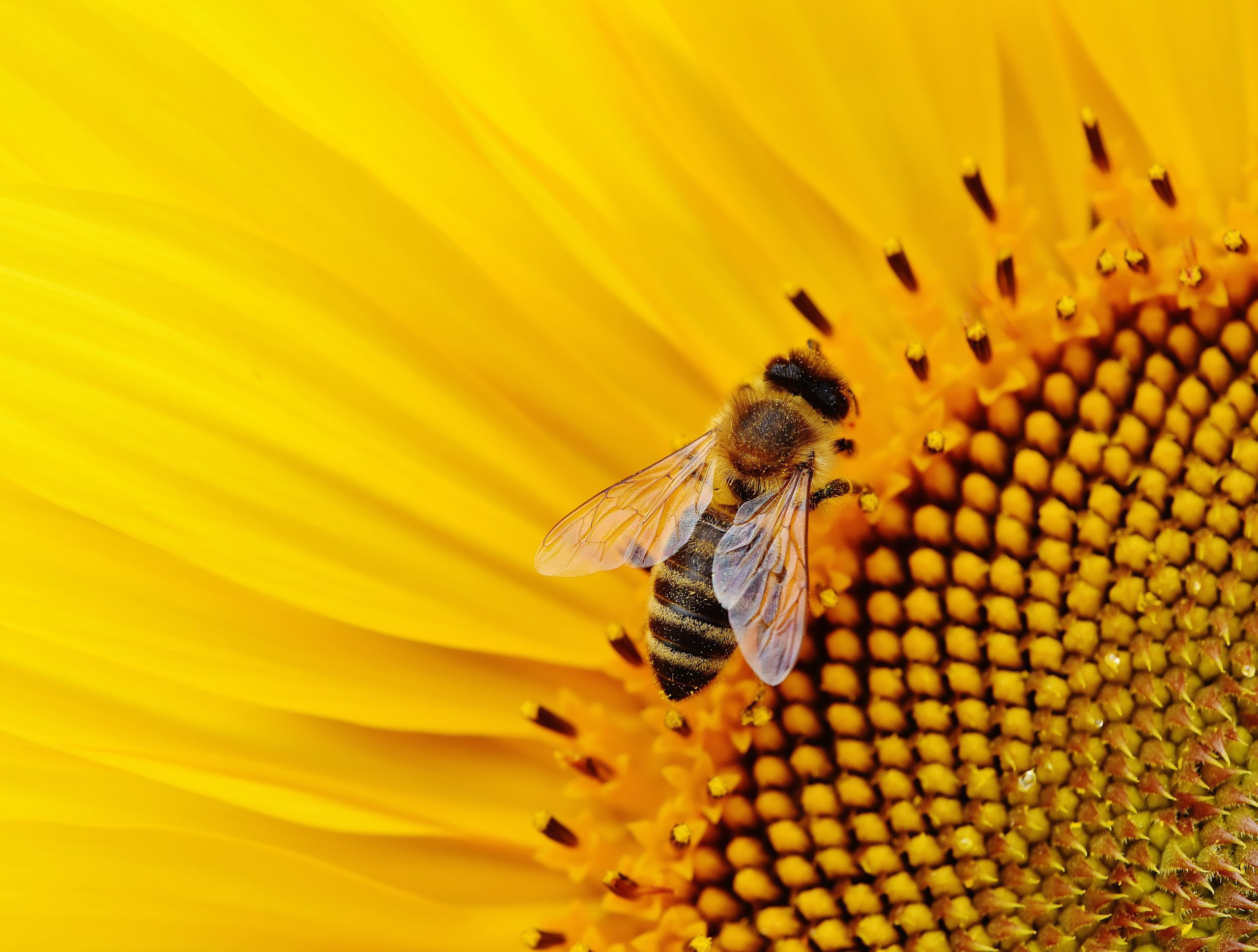BEES, often regarded as nature’s tiny superheroes, play a crucial role in pollination, ecosystem balance, and food production. However, India has witnessed a worrying decline in its bee population in recent years. This decline, a buzzing concern, is not only an environmental issue but also has far-reaching implications for agriculture, biodiversity, and food security. At this juncture, the role of NGOs, particularly those helping the poor and the elderly, becomes instrumental in creating a sustainable environment.
The ongoing decline in the bee population globally represents one of the most significant threats to food security. As key pollinators integral to food production, bees contribute substantially to the ecosystem and our diet. Several factors, such as pesticide exposure, habitat loss, climate change, diseases and parasites, poor nutrition, and electromagnetic radiation, are causing a steep decline in their numbers.
Why is bee population declining?
Unsustainable agricultural practices
Bees are essential pollinators for many crops, including fruits, vegetables, nuts, and oilseeds. Their pollination services contribute to higher crop yields, improved quality, and increased diversity. The decline in bee population directly affects agricultural productivity, leading to reduced crop yields and lower quality produce. This, in turn, exacerbates food scarcity issues that NGOs for food donation deal with daily. Further, economic losses for farmers lead to increased poverty levels, adding to the challenges faced by NGOs helping the poor.
When it comes to pesticide exposure, agricultural practices play a crucial role. The rampant use of pesticides, specifically neonicotinoids, is harmful to bees, damaging their nervous systems and impairing their foraging abilities, leading to eventual death. NGOs in India that work towards helping the poor have been focusing on educating farmers about sustainable farming practices that minimise the use of such harmful pesticides, fostering a healthier environment for bees.
Habitat Loss
Habitat loss due to urbanisation, deforestation, and changes in land use also adversely affects bee population by eliminating their food and nesting areas. Monoculture farming, where a single crop is grown extensively, further reduces the diversity of pollen and nectar available to bees, impacting their nutrition and immunity. Environmental NGOs in India are actively campaigning against such practices and are working towards promoting biodiversity.
Climate change
Climate change adds further risks, disrupting bee-plant synchrony and increasing the vulnerability of bees to diseases and parasites. Addressing these challenges is essential for maintaining food security and ecological balance.
The decline in the bee population directly affects food security, particularly for the poor who heavily rely on agriculture. The drop in pollination rates could lead to decreased crop yields and increased food prices, putting a strain on the already vulnerable sections of society. NGOs focusing on food donation are working tirelessly to address food security concerns, providing meals to those in need.
To amplify their efforts and resources, these NGOs are turning to crowdfunding platforms in India, such as Give, which is India’s largest and most trusted fundraising platform. Through these crowdfunding platforms, NGOs are able to fundraise effectively, bringing attention to the urgent need to address the declining bee population and its potential impact on food safety for the poor.
In essence, the declining bee population in India is a pressing issue that requires immediate attention and action. NGOs across the country are playing a pivotal role in addressing this crisis, focusing their efforts on educating farmers, preserving the environment, securing food for the poor, and fundraising through crowdfunding platforms. Their collective efforts are indispensable for protecting our bees, ensuring food safety, and safeguarding our ecosystems.
Conservation and cooperation need of the hour
In the face of the declining bee population, implementing conservation measures is of paramount importance, and this task involves cooperation from various stakeholders.
Promoting Pollinator-Friendly Practices: To ensure the health and survival of bees, we need to encourage pollinator-friendly agricultural practices. This involves reducing pesticide usage, creating bee-friendly habitats, and diversifying crops. Environmental NGOs in India significantly promote these practices, particularly in rural and agricultural communities.
Raising Awareness and Education: Awareness about the importance of bees and the dangers they face is crucial. NGOs are fundamental in educating farmers, beekeepers, policymakers, and the public about the value of bees, the need for their conservation, and the importance of sustainable agricultural practices. They also run campaigns that advocate for the preservation of natural habitats and encourage citizen participation in bee conservation efforts.
Supporting Beekeepers and Research: The role of NGOs also extends to supporting beekeepers, providing them with resources and education to promote sustainable beekeeping practices and the conservation of indigenous bee species. Fundraising in India, particularly through Indian crowdfunding platforms, plays an instrumental role in securing the necessary funds for this cause. Such funds can also be used for research to gain a deeper understanding of bee health, diseases, and breeding, which can help mitigate factors contributing to the decline in bee population.
Policy and Regulation: NGOs can also influence policy and regulation to protect bees. They advocate for the development and implementation of policies that promote pollinator conservation, regulate pesticide usage, and protect natural habitats. Fundraising and crowdfunding in India can provide NGOs with the resources they need to lobby policymakers and ensure that regulations conducive to bee populations are put in place.
–
Give’s mission is to “make giving bigger and better.” Give is the most trusted donation platform in India for fundraisers and crowdfunding campaigns. Through our technology solutions, we enable individuals and organisations to fundraise and donate to a cause, charity or NGO with trust and convenience. Give’s community of 2.7M+ individual donors and 300+ organisations supports 3,000+ verified nonprofits with 80G deduction and serves 15M+ people across India. Find a fundraiser today!

Choosing to tread the proverbial road less travelled, Ramon embarked upon a career in journalism and spent over 8 years working for various media organisations. A deeper calling to create a sustainable impact in the lives of the less fortunate compelled him to join the social sector. Ramon is a minimalist at heart and an explorer in spirit.
Discover more from
Subscribe to get the latest posts sent to your email.

